By Ed Stetzer
In our final part of this series, we look at pastors’ struggles with mental illness and the supportiveness of churches.
In my first post, I began discussing the results of some recent research conducted byLifeWay Research (in partnership with Focus on the Family and an anonymous donor) on the church and mental illness. I shared information that reveals the current general view of pastors on the subject, some of which is encouraging and some of which is rather disconcerting.
In last week’s post, we covered how pastors feel about medicine and therapy for mental illness.
We’ve talked a good bit about how pastors address (or don’t address) mental illness in their churches, but they are not immune from this sort of illness themselves.
Pastors’ Struggles With Mental Illness
As a matter of fact, 23% of our pastoral respondents indicated that they believed they had personally struggled with a mental illness of some kind.
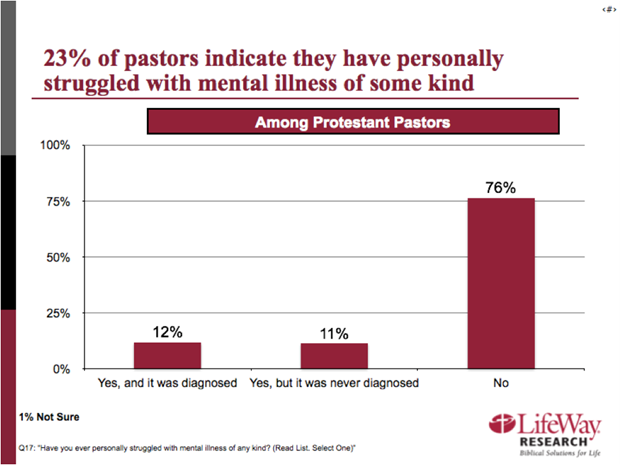
I was recently asked by a reporter if pastors were openly talking about such struggles. My answer was, “probably not.”
Actually, as I see it, there seems to be only a couple of places where pastors regularly and safely share. The first way they share is when they are in a prominent role where it is safe to say they struggle because they’ve already achieved their ministry goals. The second way is in writing after-the-fact, often after they have retired or stepped out of ministry.
What is a lot less common among pastors is sharing the struggle while going through it.
For example, telling a search committee, or sharing with a bishop who might appoint you, that you struggle with mental illness is pretty uncommon.
So, though we rejoice over seeing that kind of honesty, it would not be easy to see that honesty in day-to-day ministry.
Mental Illness and Supportive Churches
It’s interesting to see that the family members of those struggling with mental illness tend to see their church as supportive—75% of the family members surveyed said their church has been supportive in some way. There has been encouragement from the church as they’ve walked with a family member through mental illness.
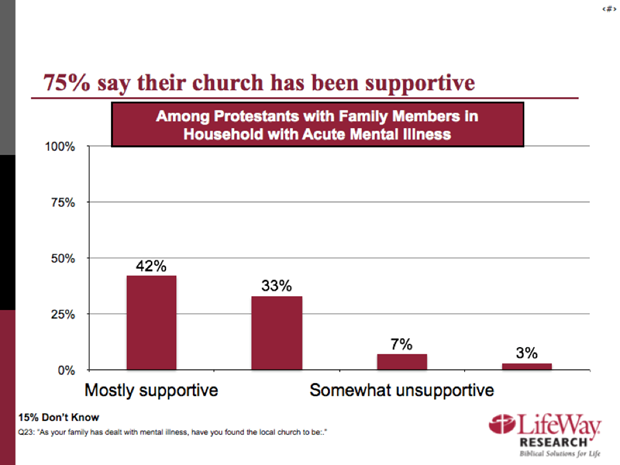
But the perception of pastors and family members of people struggling with mental illness in their churches is not the same. If you look at the third line down in the next graphic (and the graphic after that), you will see that almost a third of the people who might be the ones that would contact the pastor about their mentally ill family member actually think a referral list of medical professionals exists (while, as the graphic below that shows, 68% of pastors think it does).
In other words, those who most NEED the list don’t think it exists while those who OWN the list think it does.
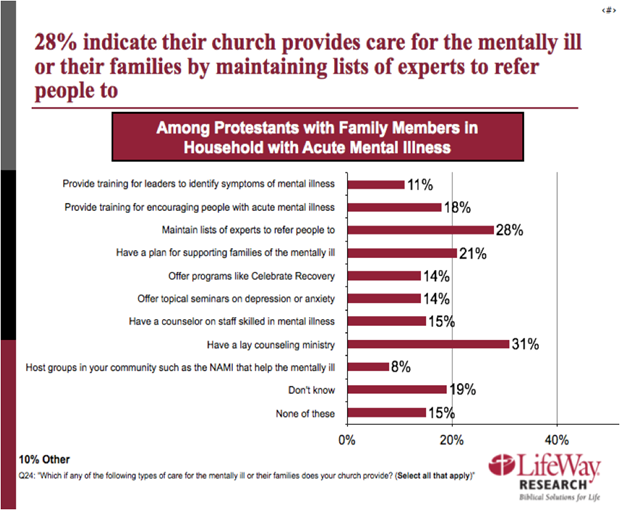
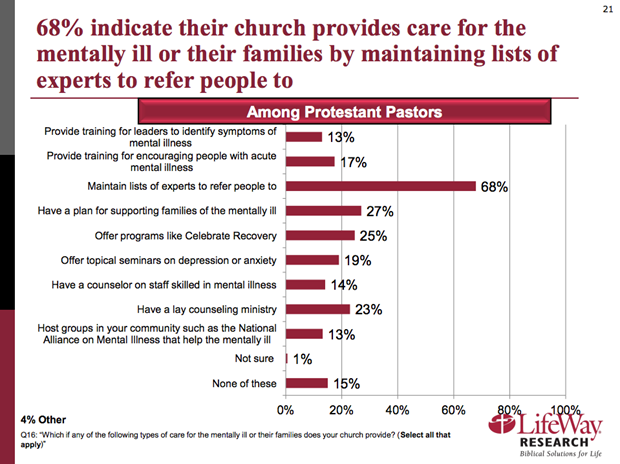
So, over two-thirds of the pastors say the church has a referral list, but less than one-third of the families with a loved one who could use it know it’s there. And, with a couple of exceptions, every answer given to the statements above is far rosier in nature when answered by the pastors than the family members.
What we see is families of people struggling with mental illness saying good things about their churches, and they probably are engaging in a churches that have a disproportionate level of interest and love for people who struggle. Even so, their perception of the churches’ engagement with mental health issues is far less than that of the pastors. Plainly, the pastors think they are doing more to serve the mentally ill than the families of the mentally ill do.
Now, as we see in the graph below, 53% of the individuals with mental illness surveyed said the local church has been supportive.
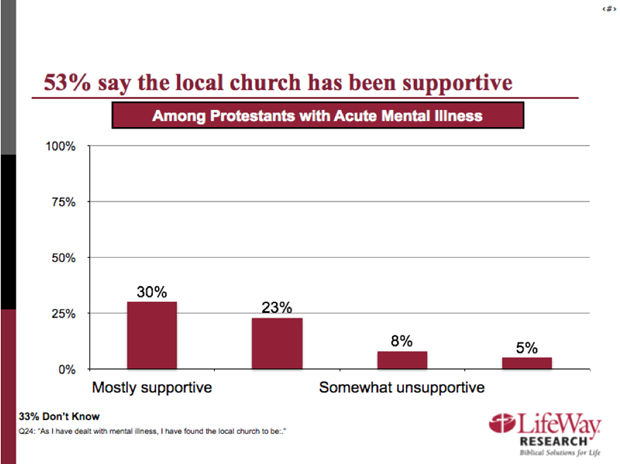
Closing Observations
We know that the Bible teaches that Christ’s followers are meant to serve the broken and the hurting. When Jesus announced his ministry in Luke 4, he said that he had been sent to preach good news to the poor, captive, and blind. Throughout his ministry, Jesus reflected that truth as he served the hurting.
The world is continuously surprised, however, that the followers of Jesus are less inclined to do the same. If you want to care about the hurting in the name of Jesus, ministry to persons (and families) struggling with mental illness is a great place to start.
There is need for our churches to speak more about mental health and to do so honestly, directly, and purposefully. Things are certainly shifting on this front, and churches are becoming more active and aware.
We have a long way to go, and talking about about it is a wonderful step in the right direction. But talking about it is not enough. The next steps will be more complicated and more involved. So let’s pray and work together toward a healthy level of engagement as Jesus’ church in what is an extremely difficult issue for the his honor and the good of those who ache.
Ed Stetzer is the Executive Director of LifeWay Research Division.
Originally posted at christianitytoday.com/edstetzer.







